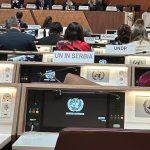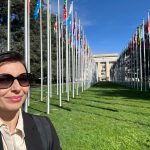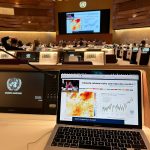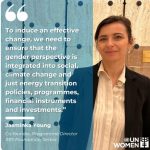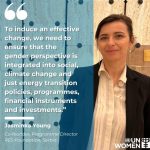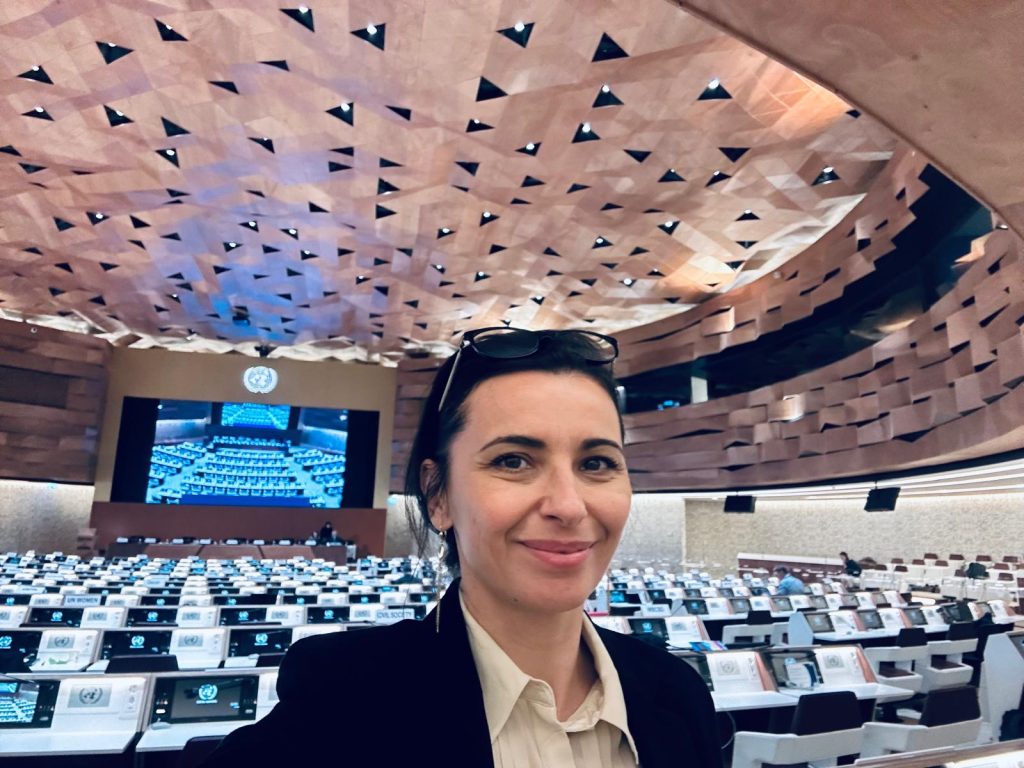
One of the participants of this year’s UNECE Regional Forum, which was held on March 13-14 in Geneve, was our co-founder and programme director Jasminka Young. The 2024 Regional Forum took place at a time of multiple crises. In recognition of the strong affirmation of the 2030 Agenda at the SDG Summit, Governments and Stakeholders across the UNECE region are now looking for impactful, innovative and crisis-resilient policies and solutions to accelerate the implementation of the Sustainable Development Goals.
Against this background, the theme for the 2024 Regional Forum was: “Reinforcing the 2030 Agenda for Sustainable Development in the Economic Commission for Europe region in times of multiple crises: The effective delivery of sustainable, resilient and innovative solutions”.
Jasminka Young participated in a peer-learning roundtable on “Solving the Rubik’s cube of the planetary crisis: lining up policy solutions for climate risks and biodiversity loss.” Supported by the UN Women Regional Office for Europe and Central Asia, she spotlighted the gender perspective on climate risks and biodiversity loss solutions.
The first half of the round table focused on the importance of strengthening preparedness to climate extremes through multi-hazard early warning systems, building on the Early Warnings for All (EW4All) initiative of the UN Secretary General, which aims at spearheading action to ensure every person on Earth is protected by early warning systems by 2027. The second half of the roundtable explored the ways in which climate change and biodiversity loss can and should be addressed together with policies having largely tackled these challenges independently.
Young spoke about gender and social inequality, in terms of access to assets, decision-making participation, and knowledge, as deeply intertwined with climate change and biodiversity loss. She emphasized that due to socially prescribed gender roles, women in the Western Balkans spend more time at home cooking and bearing additional consequences of inefficient energy use, as well as that a WHO study shows that women and children’s health suffer more from air pollution in the Western Balkan.
In her opinion, to induce an effective change, we firstly need to address the structural drivers of social inequity and poverty in an integrated manner to mitigate the harmful impacts of climate change and biodiversity loss and pave the way for a just transition. Finally, it is critical to include women in the design and implementation of local-level policies and solutions as they are closer to the target group (women and girls in poverty), concluded Young.


